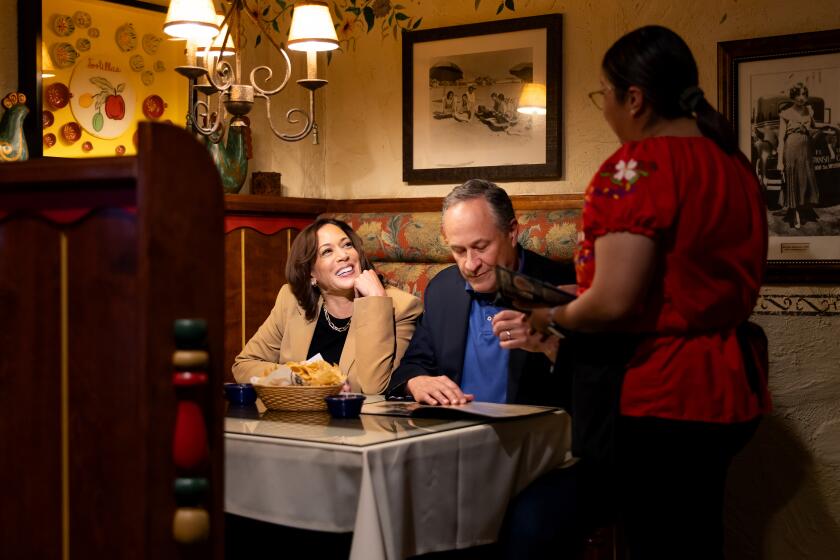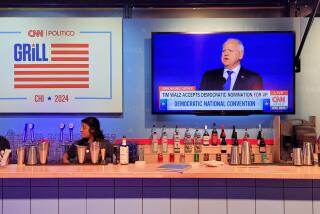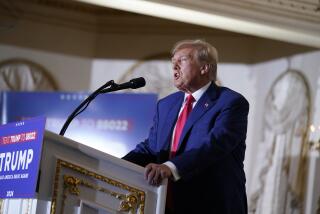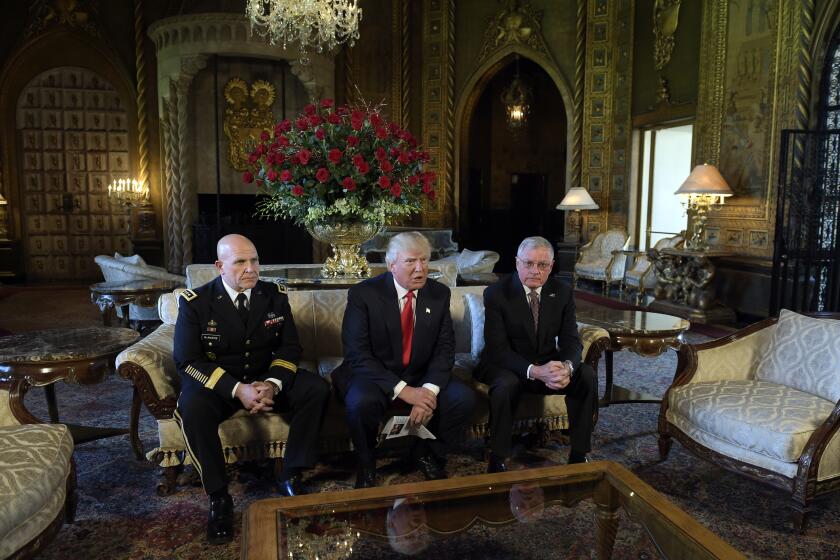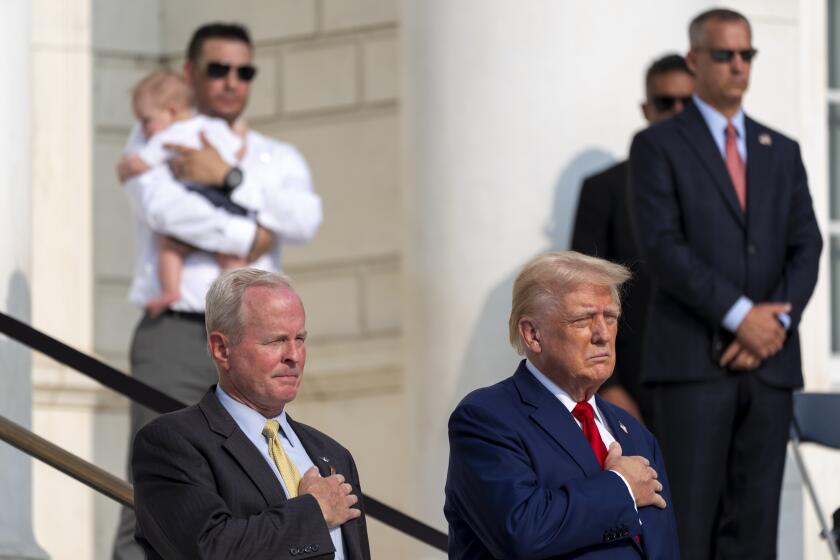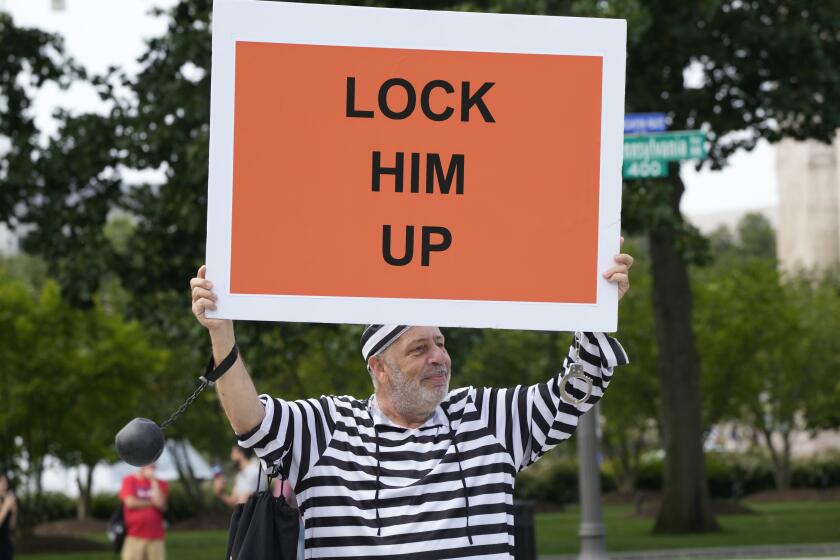JD Vance and the politics of vegetarianism in a red-meat Republican Party

The ebullient audience at the Republican National Convention was ready to be served up some red meat, but Usha Chilukuri Vance, onstage to introduce her husband, vice presidential candidate JD Vance, delivered the exact opposite.
“Although he’s a meat-and-potatoes kind of guy, he adapted to my vegetarian diet and learned to cook food from my mother — Indian food,” she said.
If it was an applause line, it didn’t have the intended effect, eliciting a few “whoops” and sparse clapping. She pressed on, joking about her husband’s beard and eventually eliciting a “JD!” chant.
For some, the speech last month raised a dietary question both in the senator’s home state of Ohio and abroad.
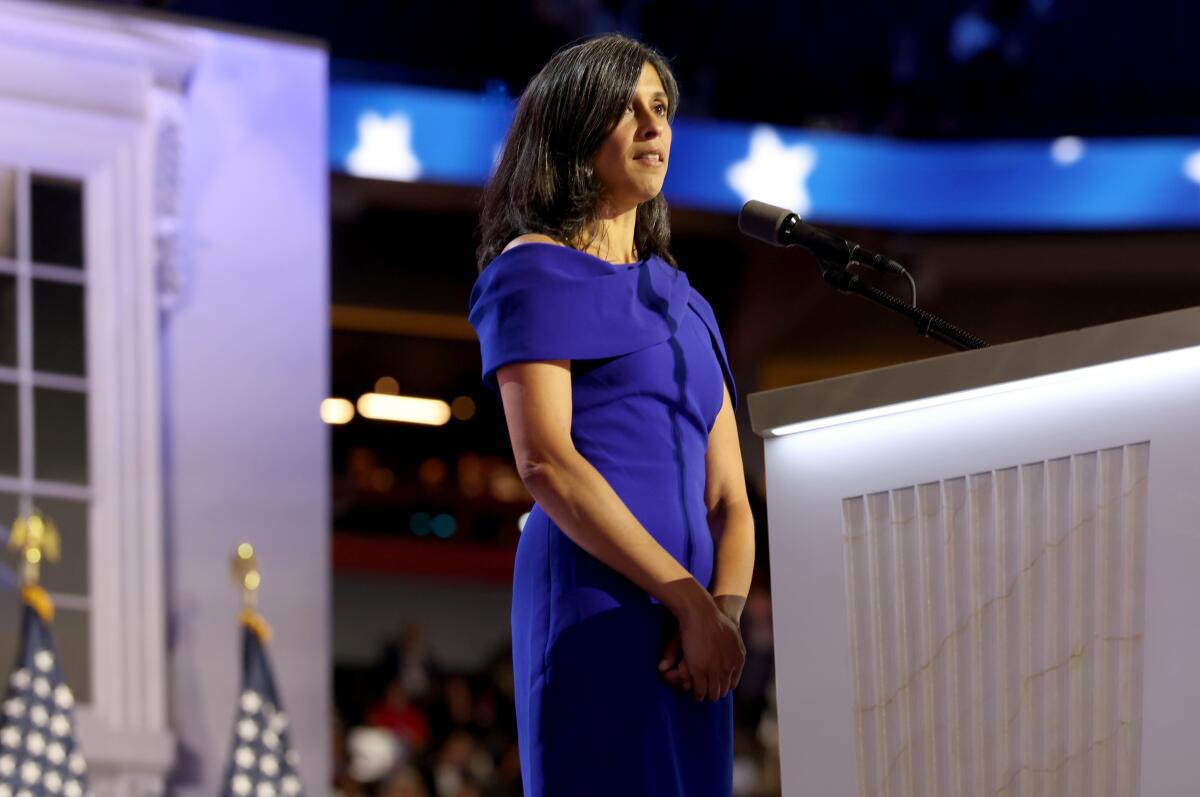
“Is JD Vance a vegetarian?” asked the Columbus Dispatch, reporting that he was “a person open to being a vegetarian.” And India’s Times Now made an inference: “It is safe to assume that their meals at home are predominantly vegetarian.”
Though Vance may enjoy a vegetarian meal, a spokesman told The Times that the candidate is not a vegetarian.
Underscoring the point are photos of Vance alongside all manner of plated flesh, including at the Hot Dog Shoppe in Warren, Ohio, where, in 2022, he smiled in front of the eatery’s namesake offering, which was covered in a chili-and-cheese slurry.
“We don’t have any vegetarian options,” said Sam Thompson, assistant general manager of the restaurant.
In politics, people — from the average voter to the seasoned analyst — tend to paint with broad brushes. This extends to generalizations about food: Vegetarians are coastal-dwelling, blue-state swells awash in kombucha; and the Republican Party is one of red meat and religion, especially in its MAGA guise. So, Vance’s willingness to have his wife mention vegetarianism in her prime-time speech seems to some observers like a perception-bucking decision.
The dietary predilections of those striving for high office have long caused them varying degrees of heartburn. It’s usually about the meaning with which food is imbued. In 2007, for example, Barack Obama was pegged as out of touch by some when he mentioned the high price of arugula at Whole Foods while campaigning in Iowa.
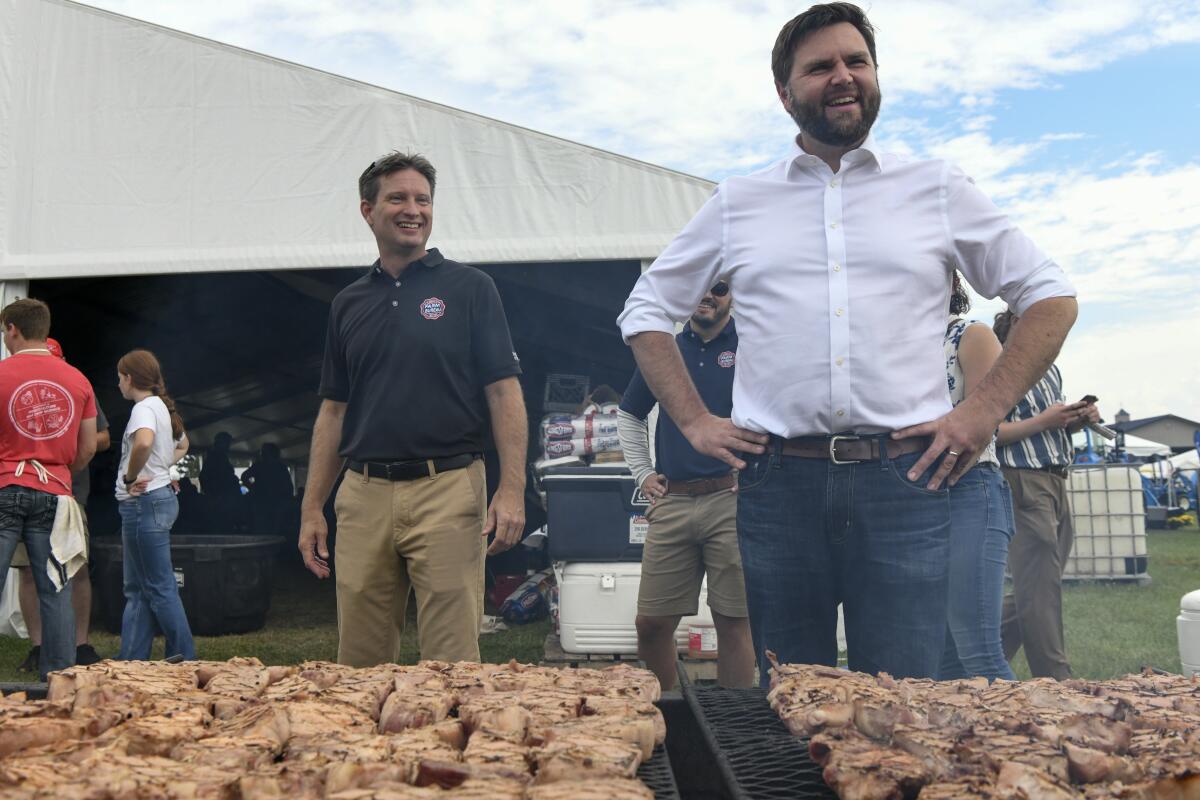
Multiple observers who watched Usha Vance’s speech said the line about vegetarianism appeared to be an attempt to humanize her husband. But, for Krishnendu Ray, professor of food studies at New York University, “it was obviously a false note.”
“How do you take these two systems ... and reconcile them? The meat and potatoes — the white nationalism that JD Vance is trying to get credentialed in — and Usha Vance’s vegetarianism,” Ray said. “It feels incongruent.”
Donald Trump, however, has a diet — and purportedly patriotic takes on food — that seems to fully align with the image he projects. The former president delights in well-done steak and fast food, and served a smorgasbord from McDonald’s and similar outlets at a 2019 White House gathering to honor the champion Clemson University football team. “If it’s American, I like it. It’s all American stuff,” Trump said at the time, noting the presence of “all of our favorite foods.”
Vice President Kamala Harris is a gourmand — one who knows how to brine a turkey, and where to find good Oaxacan food in L.A. She’s made it part of her political persona.
Only 4% of Americans identify as vegetarians, according to a recent Gallup poll. And these days, there’s little doubt: In popular American culture, vegetarianism often is perceived as “liberal, wimpy and feminine,” Ray said.
Meat, on the other hand, is “associated with physical strength and masculinity,” said Adam Shprintzen, author of “The Vegetarian Crusade,” which chronicles the history of vegetarianism in the U.S.
And yet, at the turn of the 20th century, vegetarianism was linked to self-improvement and strength. Shprintzen noted that Hall of Fame pitcher Cy Young “flirted with” vegetarianism and the championship-winning 1907 University of Chicago football team adopted a vegetarian diet.
Vegetarianism “became more focused on improvement of the individual ... and gained a significant amount of social cachet,” said Shprintzen, who added that decades would pass before it evolved into an emblem of the counterculture.
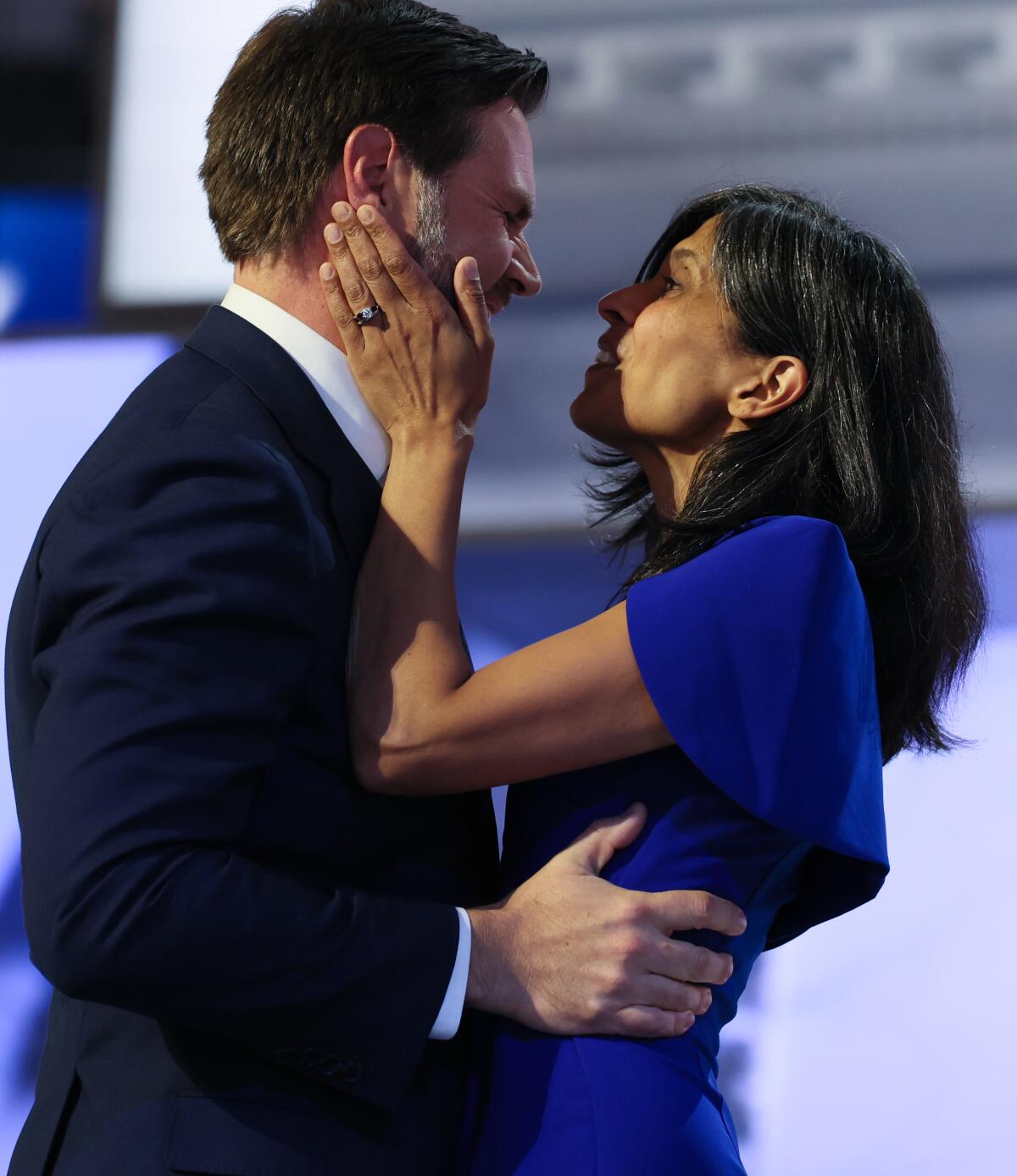
A few weeks after his wife’s speech conjured images of the Vance family sitting down to a meal of tandoori seitan steaks, the senator seemed to position himself — and the Republican Party — as the choice of meat eaters while criticizing Democratic presidential candidate Kamala Harris.
“She even wants to take away your ability to eat red meat,” Vance said of Harris at an Aug. 3 rally. “That’s how out there she is.”
This is not true.
Vance, a former Never Trumper, delved into issues of food and identity in his 2016 memoir, “Hillbilly Elegy.”
In the book, Vance, who endured an impoverished childhood in Ohio, described a milieu where meals came from Wendy’s, McDonald’s and Taco Bell, and home cooking meant Hamburger Helper and TV dinners.
“We rarely cook, even though it’s cheaper and better for the body and soul,” he said of working-class white people.
As he grew up, Vance learned just how unhealthful his diet had been. While in Marine Corps boot camp, he suffered a harsh put-down from a drill instructor after grabbing a post-meal dessert: “You really need that cake, don’t you, fat ass?”
But the military changed Vance’s perspective on food — specifically the fare of his upbringing, such as bologna sandwiches topped with crumbled potato chips.
“I began asking questions I’d never asked before: Is there added sugar? Does this meat have a lot of saturated fat?” he wrote.
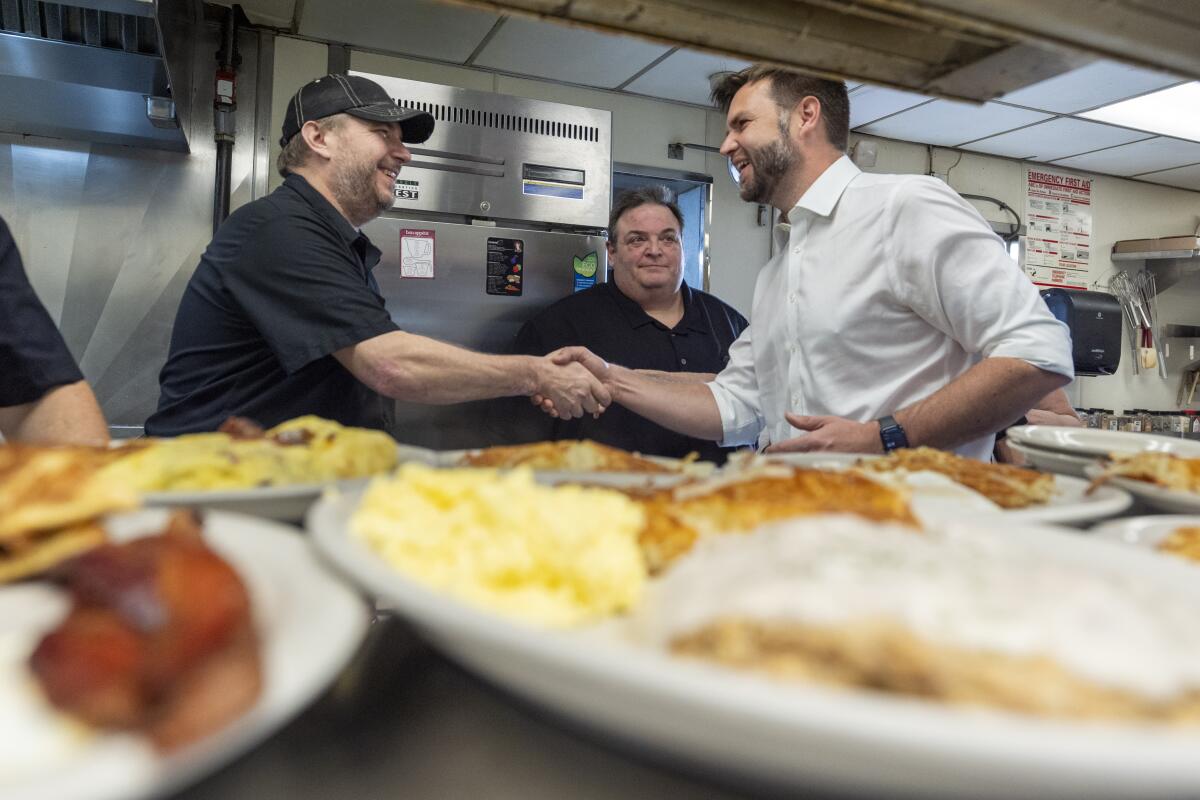
Later, while attending Yale Law School, Vance sought his future wife’s counsel when he was flummoxed by the array of silverware flanking his plate at a dinner hosted by a law firm.
“Nine utensils? Why, I wondered, did I need three spoons?” he wrote. “Why were there multiple butter knives?”
Vance retreated to the restroom and phoned Usha, who instructed him on the finer points of cutlery.
Food was never more central to a presidential campaign than during the election of 1840 — the one pitting Martin Van Buren against William Henry Harrison. As with Vance’s adapting to his wife’s vegetarianism, it was all about how the politicians’ preferences were perceived.
Van Buren, the incumbent, was a gourmand and “loved all things French food,” said Bruce Kraig, author of “A Rich and Fertile Land: A History of Food in America.” So the president’s opponents depicted him as a snob who dined on turtle soup and foie gras.
1
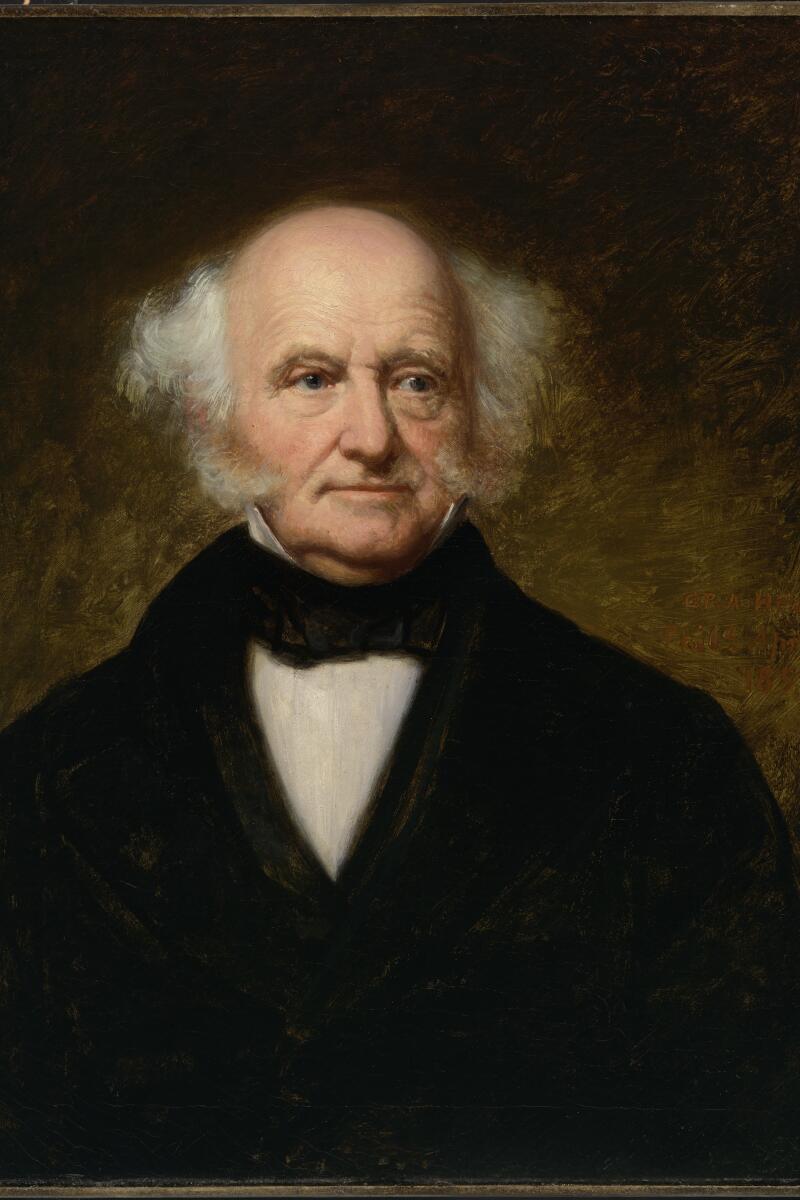
2
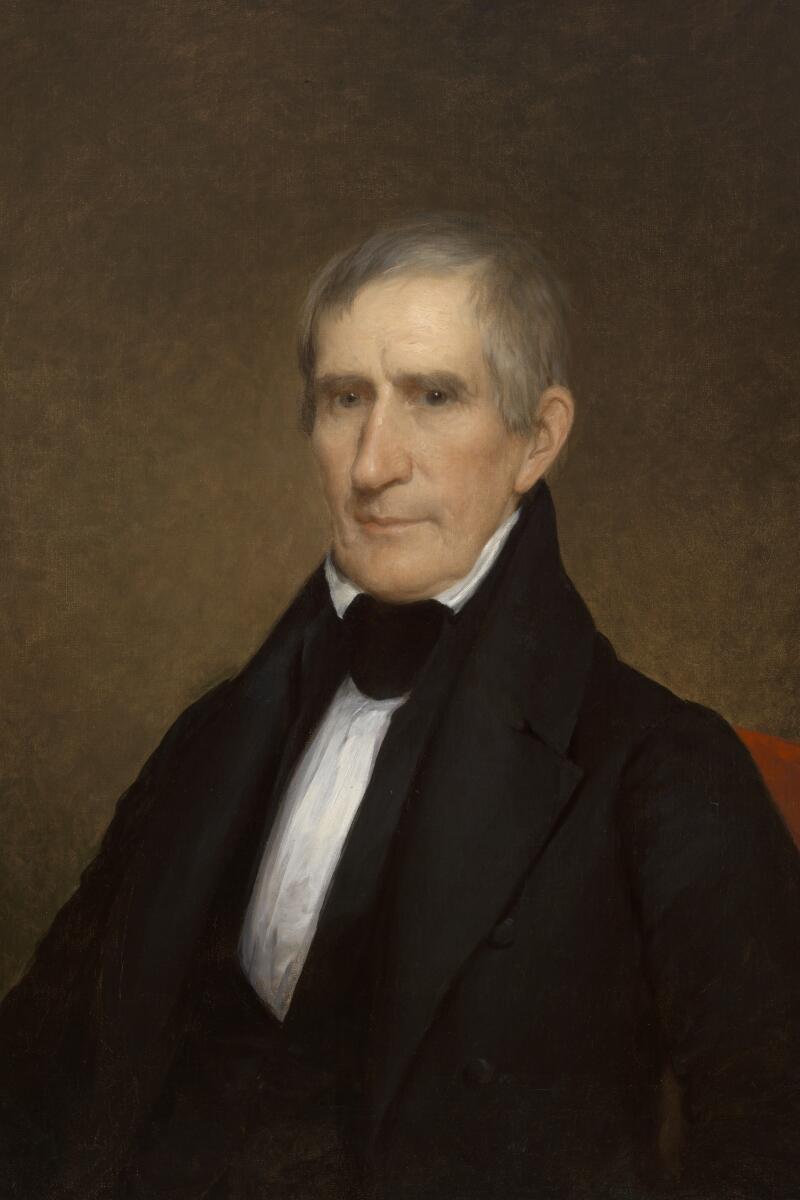
1. Martin Van Buren. 2. William Henry Harrison. (Heritage Images / Heritage Images via Getty Images)
Van Buren, meanwhile, aimed to portray Harrison, a Virginian, as an unsophisticated “country squire” who lived in a log cabin and drank hard cider, Kraig said.
But, in a stroke of political savvy, Harrison leaned into the image, campaigning from town to town in a kind of roving bacchanal. At each stop, Harrison’s team would dole out free cider and food.
In the end, he won the election but died a month after his inauguration — the shortest presidency in U.S. history.
But the cause wasn’t food poisoning. He got sick with a cold that led to pneumonia after delivering an exceptionally long inaugural address in inclement weather.
More to Read
Get the L.A. Times Politics newsletter
Deeply reported insights into legislation, politics and policy from Sacramento, Washington and beyond. In your inbox three times per week.
You may occasionally receive promotional content from the Los Angeles Times.

